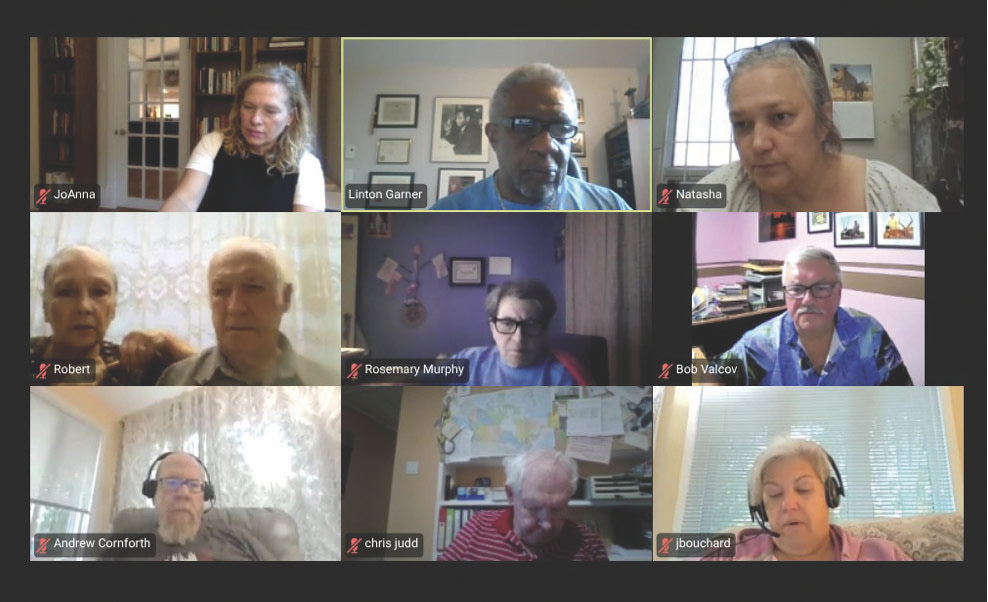
The Local History Committee of the Western Quebec Region has been established to preserve English-speaking heritage, document local archives, and ensure anglophone contributions are reflected in Quebec’s historical narrative and school curriculum. Photo: Screenshot of the Local History Committee of the Western Quebec Region zoom meeting on September 3, 2025
Local history: New committee launched to provide schools with curriculum help
Tashi Farmilo
The newly formed Local History Committee of the Western Quebec Region has been established to preserve and promote the history of the region’s English-speaking communities, with an emphasis on ensuring their contributions to Quebec are neither forgotten nor excluded from the public record.
Convened on September 3, the committee brought together historians, educators, journalists, community leaders, and residents from across the region. The formation was led by Linton Garner, chair of the Quebec Association of Local History Committees, and Brian Rock, vice chair of the same association and a longtime advocate for historical education.
At the heart of the initiative is a concern that anglophone contributions to the development of Quebec have been neglected in both public discourse and the provincial curriculum. The committee aims to address this by identifying local archives, cataloguing family and community records, and working with schools to integrate English-speaking history into formal education.
“We’re seeing too many examples of local archives being hidden away, forgotten, or scattered in private hands,” Rock said during the meeting. “Our goal is to document, preserve, and share the stories that have shaped this region.”
The Local History Committee of the Western Quebec Region plans to create a public directory of English-language historical records, encourage digitization efforts, and establish partnerships with educators and school boards. The long-term goal is to ensure the region’s historical narrative reflects the communities that built it—including those whose stories have often been overlooked.
The committee was officially formed by unanimous vote, and a steering committee has been appointed to begin its work. Similar local committees are expected to follow in other regions under the umbrella of the Quebec Association of Local History Committees.
“We want this to be more than preservation,” Garner said. “It’s about cultural continuity, civic education, and asserting the rightful place of English-speaking Quebecers in the province’s past and future.”

